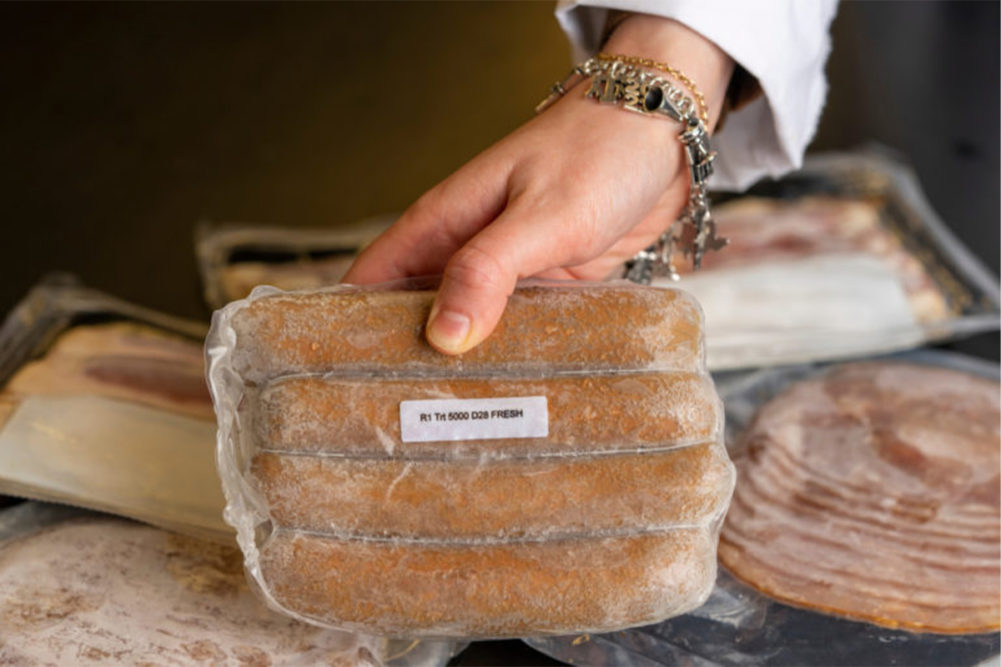COLLEGE STATION, TEXAS — An associate professor at Texas A&M University is developing an innovative method to produce cured meat without the addition of natural or synthetic nitrite sources.
Traditionally, curing processed meat involves adding sodium nitrite to the products to preserve them and reduce the potential for pathogen growth.
Wes Osburn, PhD, Texas A&M associate professor in meat science, received a $500,000 grant from the US Department of Agriculture (USDA) in 2022 to determine the feasibility of adding amino acids to activate the nitric oxide synthase (NOS) system.
“It could be that this approach is actually a ‘natural curing process’ by adding an amino acid to an enzyme whose primary function is to generate nitric oxide,” Osburn said. “I’m not adding any nitrates or nitrites.”
Osburn and his team of researchers are applying this method to restructured ham, beef jerky, bacon, fermented summer sausage or salami, and poultry frankfurters — each requiring different processing steps to validate that the amino acid curing system effectively cures different protein products.
“The question we are still trying to answer is, will the NOS enzyme generate sufficient amounts of nitric oxide to develop acceptable cured meat color and enough residual nitrite to ensure that the product is safe, regardless of whether it is summer sausage or pepperoni or some other product?” Osburn said.
The research team is in the second phase of the USDA-funded grant. They are now looking at the process from a commercial perspective. The amino acid cured meat will be evaluated on all product aspects, including color, shelf life, aroma and sensory properties.
“If, based on the results of our research, the data indicates that our new curing system is comparable to conventionally cured products with respect to safety, shelf life and sensory attributes, then there is a great chance for industry adoption of this process,” Osburn said. “This new curing system must compete favorably with the current curing system. If we can’t get close to it, it’ll always be a novel thing.”

